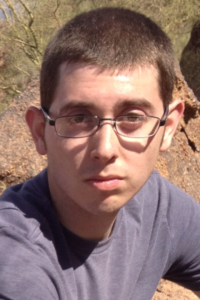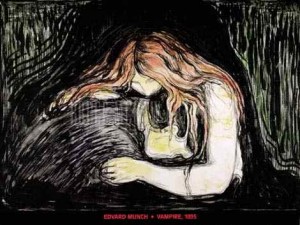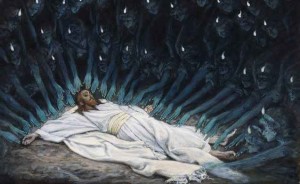 I once sat in on a poetry workshop with the Nobel Laureate Derek Walcott. I am not a poet, but he had agreed to come to my graduate school after a reading and I wanted to hear what he had to say. I snuck in and took a seat at the table, hoping that I wouldn’t be noticed. When Walcott entered, he took his seat, looked over the assembled poets, looked back again at me, and asked “What’s Woody Harrelson doing here?” (This is a remark I’ve gotten many times, although never from someone with a Nobel.)
I once sat in on a poetry workshop with the Nobel Laureate Derek Walcott. I am not a poet, but he had agreed to come to my graduate school after a reading and I wanted to hear what he had to say. I snuck in and took a seat at the table, hoping that I wouldn’t be noticed. When Walcott entered, he took his seat, looked over the assembled poets, looked back again at me, and asked “What’s Woody Harrelson doing here?” (This is a remark I’ve gotten many times, although never from someone with a Nobel.)
When the chuckling around the table subsided, he let his smile fade too, took up the stack of poems, gazed at them for a moment, and then set about lambasting the assembled poets. He insisted that writing is a relationship with power; that it is a relationship that cannot be conducted in any serious way from inside the dominant center. Writing, he said, must be conducted “from the provinces.” According to Walcott, every young poet in the room was writing as if he or she was (or wanted to be) in “New York City, looking out at the rest of us.” He meant New York City literally, I think, but also metaphorically, as a kind of mental space in which artistic insiders, by virtue of being on the inside, come to be allied with the centers of cultural power and the dominant narrative. According to Walcott, this was an inexcusable artistic mistake.
The relationship with the center of power is one that (whether or not we agree with Walcott on the particulars) bears directly on writing about the American West. Like many people from the region, I grew up with a host of “Western” narratives and beliefs. I was raised in the great outdoors, fishing and backpacking, and I imbibed a heavy dose of frontier mythology – cowboys and gunfighters, Indians, pioneers, mountain men, pulp novels and Western movies. This is classic provincial stuff – the kind of heritage that, at a college back East, or a cocktail party on the Upper East Side, is often treated with a solicitous condescension. As Marilynne Robinson has noted, when she tells Eastern folks that she is from Idaho, one common response is “Then how can you write a book?” And yet it is also this province which has given the nation what is perhaps our deepest cultural myth: the self-reliant pioneer, the immigrant moving west to find land and freedom, the illimitable expansion of possibility, our Edenic vision of our nation.
In Walcott’s terms, then, the West is caught in a kind of paradox: it has the status of a province, and yet its myth has been enshrined as the national dream. Being a Western writer ties you unavoidably to this paradox. You are a provincial, a writer who will always, like it or not, operate from outside the center of power; but it is exactly towards this province’s myth of the radical individual that the American center has always wanted to feel it is moving.
An it is indeed a myth. We should all know by now. Beautiful and destructive, hopeful and violently acquisitive, forced relentlessly onto us by a culture that adores power and spectacle and self-help mantras, and yet with little regard for truth, either historical or human. Post-colonial writers like Walcott have always been viscerally aware of the effects of this, because they come from places that have born the brunt of its damage. I wonder if it’s time for more Western writers to engage with this awareness.



